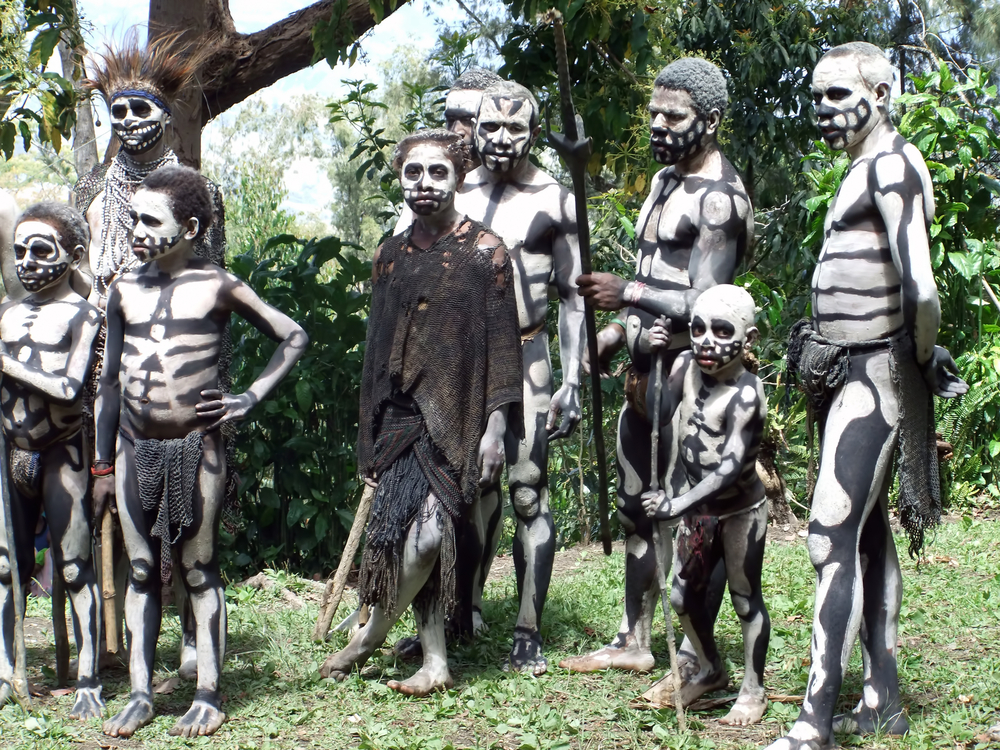Vampire Cannibals: Real Ghouls Haunt Papua New Guinea

Papua New Guinea — a large island nation north of Australia — boasts a fast-growing economy and a rich natural resource base of gold, copper, oil and agricultural products. But deep within the British Commonwealth country's rugged mountains and tropical rain forests, some dark practices still occur.
On Wednesday (Oct. 9), the father of a 3-year-old girl allegedly took his daughter into a wooded area and bit into her neck, eating the flesh and sucking her blood, the Papua New Guinea Post-Courier reports. Two boys reportedly witnessed the event and reported it to local officials, who quickly arrested the man.
"He was just laughing at the boys and continued eating the flesh and sucking the blood," local councilor John Kenny told the Post-Courier. As gruesome as the incident was, it's not an isolated event, according to numerous reports from Papua New Guinea (PNG). The relatively unexplored country is home to millions of people who live in isolated rural villages and maintain traditional practices that, by many reports, sometimes include cannibalism. [13 Superstitions & Traditions Explained]
Last year, PNG officials arrested 29 people for killing and cannibalizing the brains and genitals of seven people accused of sorcery. In February, the family of a 6-year-old boy who had recently died accused a 20-year-old mother of witchcraft.
The woman was stripped, bound, tortured with a hot iron, doused with gasoline and burned to death on a pile of trash in broad daylight in front of hundreds of onlookers, The Associated Press reported. Officials condemned the brutal killing, but made no arrests.
Cult leader slaughtered
In March, Steven "Black Jesus" Tari — a convicted rapist and leader of a cult group dedicated to rape, sacrificial killings and cannibalism — escaped from prison and returned to his cult, which has an estimated 6,000 members.
Sign up for the Live Science daily newsletter now
Get the world’s most fascinating discoveries delivered straight to your inbox.
But last month, Tari met his end after reportedly killing a teenage girl: He was castrated, butchered and thrown into a shallow pit by a group of vigilantes, the Independent reported. "Tari is dead, and this cult worship dies with him," said police investigator Ray Ban, as quoted by the Independent. "If I hear of any more cult worship here, I will return with my men."
Other PNG officials expressed similar disdain. "It is reprehensible that women, the old and the weak in our society should be targeted for alleged sorcery or wrongs that they actually have nothing to do with," PNG Prime Minister Peter O'Neill told the Associated Press.
Government cracks down
In response to vigilante violence and other sorcery-related crimes, PNG has repealed its 1971 Sorcery Act, which criminalized "evil sorcery," known locally as sanguma. The country has also reinstituted the death penalty for anyone found guilty of murdering a suspected witch; the United Nations, Amnesty International and other groups condemned this reinstatement.
"These are very tough penalties, but they reflect the seriousness of the nature of the crimes and the demand by the community for Parliament to act," Daniel Korimbao, a spokesman for O'Neill, said in a statement, as reported by The New York Times.
Follow Marc Lallanilla on Twitter and Google+. Follow us @livescience, Facebook & Google+. Original article on LiveScience.










